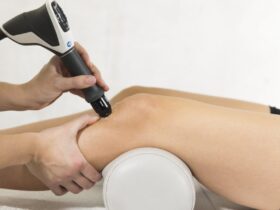Sixty-three percent of adults aged 18 and above go to the dentist, and several people in that group undergo oral surgery. You wonder how long it will take to recover from oral surgery fully.
You may want to get back to normal as soon as possible. But recovery times depend on the procedure and your overall health.
You may also be someone not worried about the speed of recovery. Either way, we want this guide to help you on your journey. Keep reading to learn more about how to recover from oral surgery in your own life!
Oral Surgery: Why You Might Need It
Most people think oral surgery is only for people with severely decayed teeth or who have developed tumors in their mouths. However, there are many other reasons why someone might need dental work.
If you have had an accident that has damaged your jaw or teeth, you might need oral surgery to correct the problem. If you have a congenital disability that affects your mouth, you might need oral surgery to fix it. And, if you have mouth cancer, you will need oral surgery.
Luckily, every city has a dentist who is specially trained to deal with these types of problems. They can provide the treatment you need while recovering from surgery and get your mouth back to normal.
Different Types of Oral Surgery
Oral surgery comes in different types, each depending on what you need. Below is a brief rundown of some of the most common types of oral surgery and what you can typically expect in terms of recovery.
Wisdom Tooth Removal
One of the most common types of oral surgery, wisdom tooth removal is typically a relatively straightforward procedure. Recovery is usually pretty quick, with most people feeling back to normal within a week or so.
Dental Implants
Dental implants are becoming increasingly popular and are an excellent option for those who have lost one or more teeth. The surgery is usually not too invasive, but it can take several months for the implant to fully fuse with the bone before the final tooth restoration can be placed.
Orthognathic Surgery
Orthognathic surgery is a corrective jaw surgery performed to improve the alignment of the teeth and jaws. It is a more complicated surgery, and recovery can take several weeks. However, the results are life-changing.
Preparing for Your Surgery
After your oral surgeon has determined that you are a good candidate for tooth extraction, they will review the procedure with you in detail. You will be given specific instructions on preparing for your tooth extraction. You may be asked not to eat or drink anything for a certain period before surgery and to stop taking certain medications.
Your surgeon may also ask you to avoid smoking before the procedure. It is essential to follow your surgeon’s instructions and ensure you are healthy before surgery. If you have any questions or concerns, be sure to ask your surgeon.
The Day of Your Surgery
The day of your oral surgery is essential, and there are things you need to do to prepare. It would be best if you have a ride to and from the surgery center. It’s important not to drive yourself, as you may be drowsy from the anesthesia.
Remember to take it easy for the rest of the day. You may be tired and sore, so it’s best to relax at home. Have you or your family prepare soft foods for you to eat.
What to Expect During the Procedure
Once you arrive for your tooth extraction, you will be given local anesthesia to numb the treatment area. Your surgeon will then carefully remove the tooth. Depending on the tooth extraction type, this process can take a few minutes to half an hour.
After removing your tooth, your surgeon will place gauze in your mouth to help control bleeding. You may also be given a cold pack to help reduce swelling. You will be given post-operative instructions and can go home shortly after your procedure.
How to Recover From Oral Surgery
If you’re facing oral surgery, you’re likely wondering how to recover from it. The good news is that recovery is usually pretty straightforward, and our ultimate guide will walk you through everything you need to know.
Expect some swelling and bruising around the surgical site. This is normal and will gradually subside over a few days. You may also experience discomfort, which can be managed with pain medication.
It’s important to follow your surgeon’s instructions carefully. This will help ensure that your recovery goes as smoothly as possible. Make sure to take any prescribed pain medication and avoid chewing or spitting as much as possible. That’s why you must eat soft foods or soups.
You’ll also need to take care of your mouth as it heals. Gently brush your teeth and tongue, and rinse with warm salt water several times a day. Avoid smoking and drinking alcohol, as these can slow the healing process.
Finally, be patient! It can take a few weeks for your mouth to fully recover. Avoid strenuous activity for the first few days following surgery. Before you know it, you’ll be back to your old self.
Recover Quickly With This Guide
If you’re planning to have oral surgery, there are things you should know first. It starts with choosing the type of oral surgery, preparing yourself for it, and how to recover after the procedure.
Recovery doesn’t have to be complicated or painful. With this guide, you’ll be on your way to feeling better in no time.
Did this article help you recover from your oral surgery? Keep reading our blog for other helpful topics!











